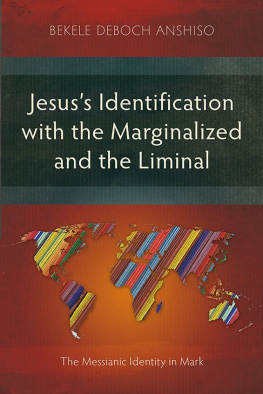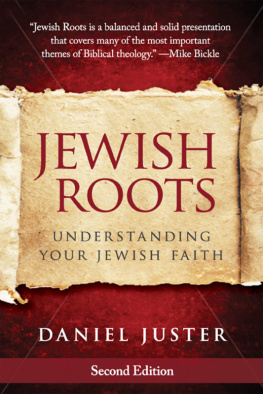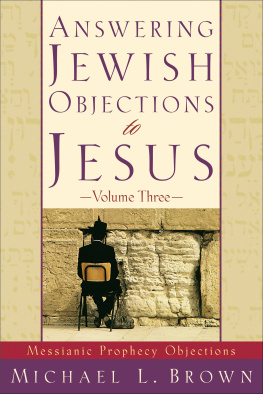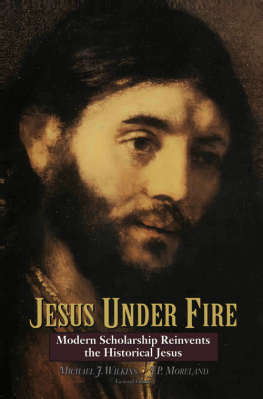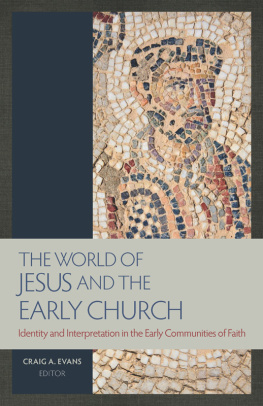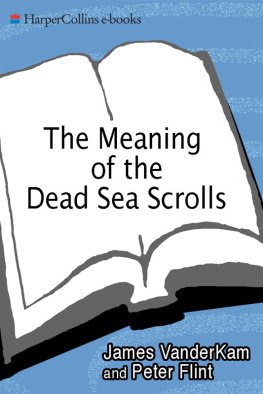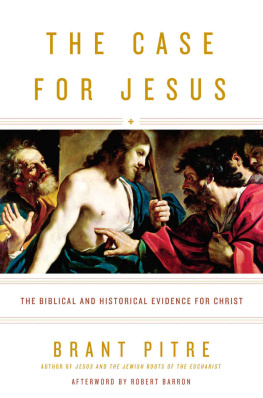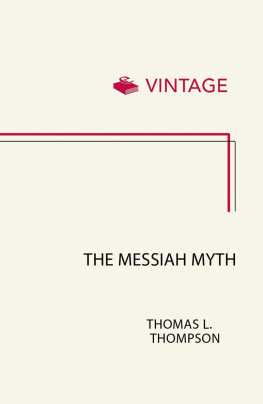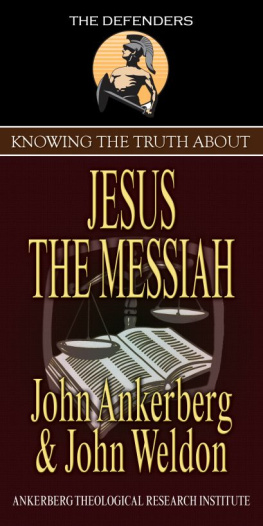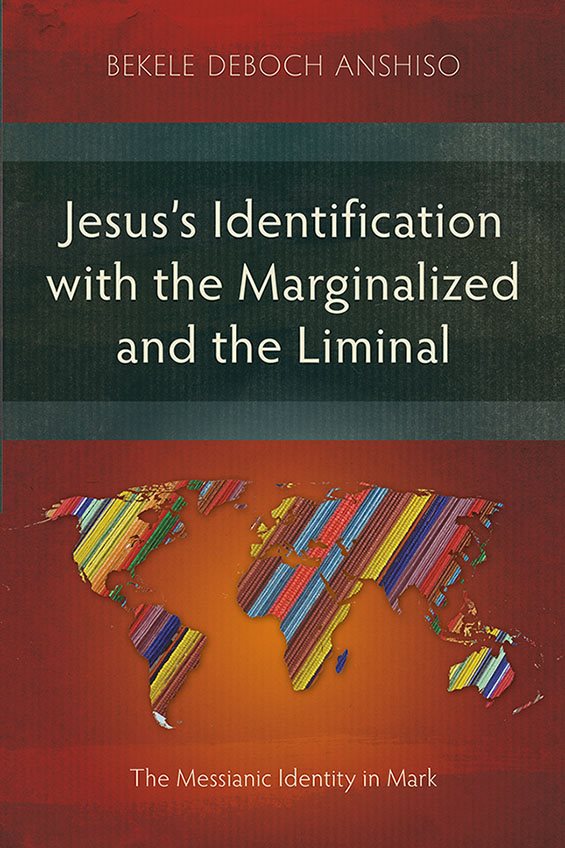Bekele Deboch Anshiso engages many of the most perennially challenging issues in the interpretation of Marks gospel. He brings fresh insight to Marks presentation of the divine messianic identity of Jesus by focusing on the way in which the revelation of Jesus as the divine Messiah in his crucifixion is anticipated and mirrored by his interaction with marginal and liminal characters in the gospel. Just as the rejected and outcast see who Jesus really is, so too, who he really is, is revealed most clearly as he is rejected and outcast. His identification with the demonized and downcast, with the sinful and excluded, reveals the nature of his mission, the nature of the people he will form, and ultimately his own nature as the revelation of God himself. The book holds many unexpected delights on Marks unexpected Messiah.
Professor of New Testament, Trinity Evangelical Divinity School, Deerfield, IL, USA
Bekele Deboch Anshisos close reading of Marks gospel highlights Jesuss messianic identity as his self-identification with marginalized and liminal people. He convincingly shows how Marks narrative enigmatically portrays the Son of God as the suffering and vindicated Son of Man, associating with disowned and disregarded people. With careful attention, Anshiso also shows how Jesuss extreme self-marginalization and identification with liminals informs his own identity, and the identity of his followers, past and present.
At our first discussion over coffee in Muizenberg I failed to see the importance of Bekele Debochs new ideas about Mark. This was because I was reading Mark with the eyes of a later Christian. It appeared obvious to me that the Messiah would associate with the marginalized. But how might it have struck someone without that background? My excitement about his thesis grew, especially in later discussions when we explored how strange it must have seemed to the first readers of Mark that a king (God no less) should associate so freely with the despised and unimportant members of his society. Was there any precedent for it?
Bekele Deboch is a remarkable person, deeply touched by God, and used by him to spread the message of Jesus among some of the poorest elements of Ethiopian society. I warmly commend this study about Jesus and the marginalized in the Gospel of Mark.
Jesuss Identification with the Marginalized and the Liminal
The Messianic Identity in Mark
Bekele Deboch Anshiso
2018 Bekele Deboch Anshiso
Published 2018 by Langham Monographs
An imprint of Langham Publishing
Langham Partnership
PO Box 296, Carlisle, Cumbria CA3 9WZ, UK
www.langham.org
ISBNs:
978-1-78368-430-4 Print
978-1-78368-431-1 ePub
978-1-78368-432-8 Mobi
978-1-78368-433-5 PDF
Bekele Deboch Anshiso has asserted his right under the Copyright, Designs and Patents Act, 1988 to be identified as the Author of this work.
All rights reserved. No part of this publication may be reproduced, stored in a retrieval system or transmitted, in any form or by any means, electronic, mechanical, photocopying, recording or otherwise, without the prior written permission of the publisher or the Copyright Licensing Agency.
Unless otherwise stated, Scripture quotations are from the New Revised Standard Version Bible, copyright 1989 National Council of the Churches of Christ in the United States of America. Used by permission. All rights reserved.
British Library Cataloguing-in-Publication Data
A catalogue record for this book is available from the British Library
ISBN: 978-178-368-430-4
Cover & Book Design: projectluz.com
Langham Partnership actively supports theological dialogue and an authors right to publish but does not necessarily endorse the views and opinions set forth here or in works referenced within this publication, nor can we guarantee technical and grammatical correctness. Langham Partnership does not accept any responsibility or liability to persons or property as a consequence of the reading, use or interpretation of its published content.
Converted to eBook by EasyEPUB
Dedication This book is dedicated to Uncle John Stott, Miss Moira McLure and the saints at Speen Baptist Church.
Abstract
This book aims to examine the idea of the messianic identity in the Gospel of Mark, emphasizing Jesuss self-identification with the marginalized and liminal people. In the whole gospel, particularly, in its decisive points, the Markan Jesus is revealed and announced as the divine Son of God by the heavenly voice, by demons and finally by the unsuspected humanity. Nevertheless, Mark recorded Jesuss messianic identity in less obvious ways which has caused ambiguity amongst New Testament scholars.
In order to discover Jesuss divine identity, preliminary studies undertaken in the past, are briefly discussed. This focuses on the messianic secret as the key point of discussion to which a satisfactory consensus has not been reached. Some Markan scholars, such as William Wrede and his supporters, believed that in the first half of Marks record of the gospel, Jesus did not think that he was the Messiah. Theodore Weeden and his followers thought that Jesus was not the Son of God but, as described in Marks second half, that he was the suffering Son of Man.
Therefore, in order to engage the narrative elements of the text and to interpret and understand the message in its own narrative context, narrative criticism is utilized. Its importance will be demonstrated as it investigates the meaning of the text as a completed work. Use is made of the probable sources Mark had available, of which the most important are the Old Testament traditions on which the Evangelist drew for his background to his text. In addition, some intertestamental writings such as Qumran literature and apocryphal and pseudepigraphical works will be discussed, not to build an alternative understanding of messiahship of Jesus, but rather to attempt to understand the contemporary Jewish thinking about the Messiah.
This book accepts that Marks gospel is the unified work of the evangelist. It is demonstrated that Jesus is portrayed as having thought that he was the divine Messiah in a unique sense. Chapter 2 exegetes and interprets particular texts, in Marks gospel, in which Jesuss divine Sonship and vindicated messiahship is shown. His divine identity is revealed and proclaimed not only as the messianic Son of God by his miraculous activities in Marks first half, but also as the suffering and vindicated Son of Man in the second, yet associating himself with unsuspecting people who are marginalized and liminal at various levels.
Chapter 3 critically evaluates certain christological themes through which Jesus is understood and confessed as the unique figure whose divine messiahship is proclaimed by God self and by humanity, and redefined and reinterpreted by Jesus himself in terms of vindicated Messiahship.
This book ends with a brief chapter challenging and encouraging the readers and interpreters of Marks gospel to understand not only Jesuss self-identification with the marginalized and liminal in and around Galilee but also his extreme marginality to the point of shameful death and glorious resurrection in Jerusalem to save humanity.
Acknowledgements

